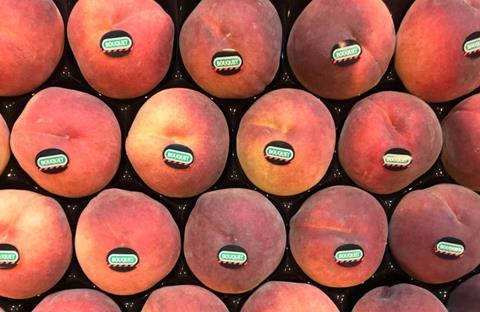
This season's European fresh peach and nectarine crop is forecast at 3.915m tonnes, around 10 per cent larger compared with 12 months ago, according to new figures published at the Interprunus event in Lleida, Spain.
Spain, Europe's largest producer, is expecting a 12 per cent increase to 1.604m tonnes, and Italy remains on course for a 13 per cent rise to 1.307m tonnes.
The greatest increase is expected in France, which has forecast 215,600 tonnes, while Greece's production is the only major crop set to decrease in size, by just under 2.9 per cent to 787,800 tonnes.
The next few weeks will be crucial to the success of the larger European crop, with all eyes on temperatures in northern European consumer markets in particular.
Low temperatures over the past month have reportedly cooled European demand for stonefruit as the campaign gets underway in Valencia according to growers.
On the production side, favourable conditions in Spain have been welcomed, with good quality reported in all the main producing areas.
For many in Italy's peach and nectarine business, greater collaboration between country suppliers in terms of market volumes will be essential in the coming years.
'Together with the Spanish and French delegations we have agreed to develop much closer coordination on various topics,' Lisa Martini, operational planning manager at leading producer organisation Apofruit.
'We could even relaunch the peach and nectarine sector by planning production better at a European level and exchanging more information.'
Peach and nectarine volumes in France are expected to be back near their maximum potential this season following a 2018 campaign marred by frost damage.
However, the country's stonefruit exporters are struggling to compete, with competition from Spain on the European market growing and production costs continuing to rise in France.
An earlier forecast published during Europêch in Perpginan, France, indicated that European apricot volumes will rise 12 per cent this season to more than 632,000 tonnes, with French and Italian production returning to normal levels but Spain likely to fall slightly after a mild winter.